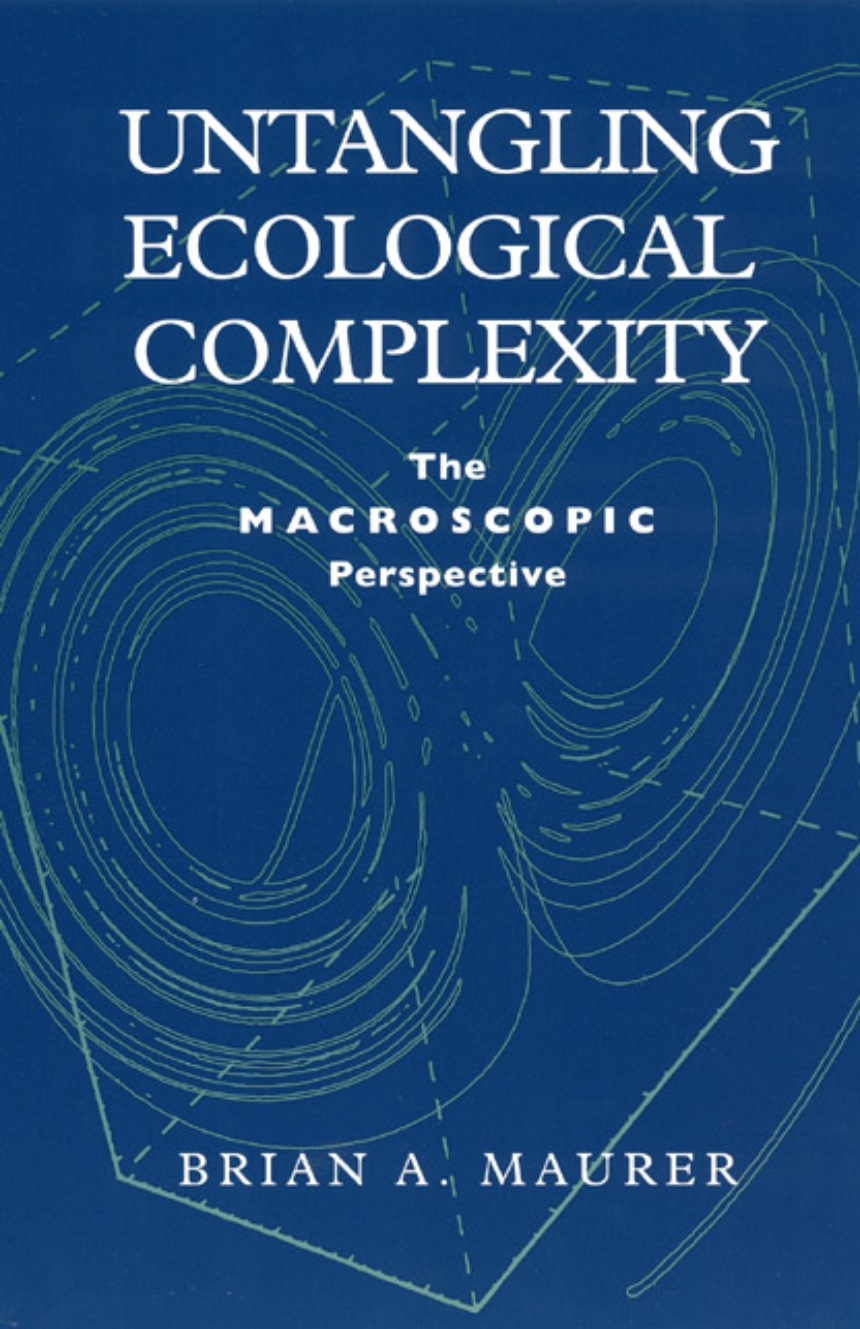Untangling Ecological Complexity
The Macroscopic Perspective
Ecologists increasingly find themselves called upon to address the impacts of global change on biodiversity. Yet most studies of biodiversity focus solely on intensive, experimental analyses of localized ecological communities. In Untangling Ecological Complexity, Brian A. Maurer argues for a more pluralistic approach, showing how ecologists might enhance their ability to tackle global problems by incorporating broader spatial and temporal perspectives into their research.
Maurer begins by reviewing the strengths and limitations of reductionist experimental approaches. Although these studies have produced much valuable data, their small scale restricts the kinds of inferences that can be drawn from them. Maurer then demonstrates how statistical methods can be used to identify processes (such as dispersal or nonrandom extinction) that operate across broad geographic scales, yet which also have profound impacts on local ecosystems. This macroscopic perspective, Maurer suggests, provides a powerful tool for untangling ecological complexity.
Maurer begins by reviewing the strengths and limitations of reductionist experimental approaches. Although these studies have produced much valuable data, their small scale restricts the kinds of inferences that can be drawn from them. Maurer then demonstrates how statistical methods can be used to identify processes (such as dispersal or nonrandom extinction) that operate across broad geographic scales, yet which also have profound impacts on local ecosystems. This macroscopic perspective, Maurer suggests, provides a powerful tool for untangling ecological complexity.
Table of Contents
Acknowledgments
Ch. 1: Of Entangled Banks and Humble Bees
Ch. 2: From Micro to Macro and Back Again
Ch. 3: Communities on Small Spatial and Temporal Scales
Ch. 4: Communities as Linear Systems
Ch. 5: Communities as Nonlinear Systems
Ch. 6: Macroecology: Expanding the Spatial Scale of Community Ecology
Ch. 7: Geographic Range Structure: Niches Written in Space
Ch. 8: Geographic Assembly of Local Communities
Ch. 9: The Evolution of Species Diversity at the Macroscale
Ch. 10: The Macroscopic Perspective and the Future of Ecology
Literature Cited
Index
Ch. 1: Of Entangled Banks and Humble Bees
Ch. 2: From Micro to Macro and Back Again
Ch. 3: Communities on Small Spatial and Temporal Scales
Ch. 4: Communities as Linear Systems
Ch. 5: Communities as Nonlinear Systems
Ch. 6: Macroecology: Expanding the Spatial Scale of Community Ecology
Ch. 7: Geographic Range Structure: Niches Written in Space
Ch. 8: Geographic Assembly of Local Communities
Ch. 9: The Evolution of Species Diversity at the Macroscale
Ch. 10: The Macroscopic Perspective and the Future of Ecology
Literature Cited
Index
